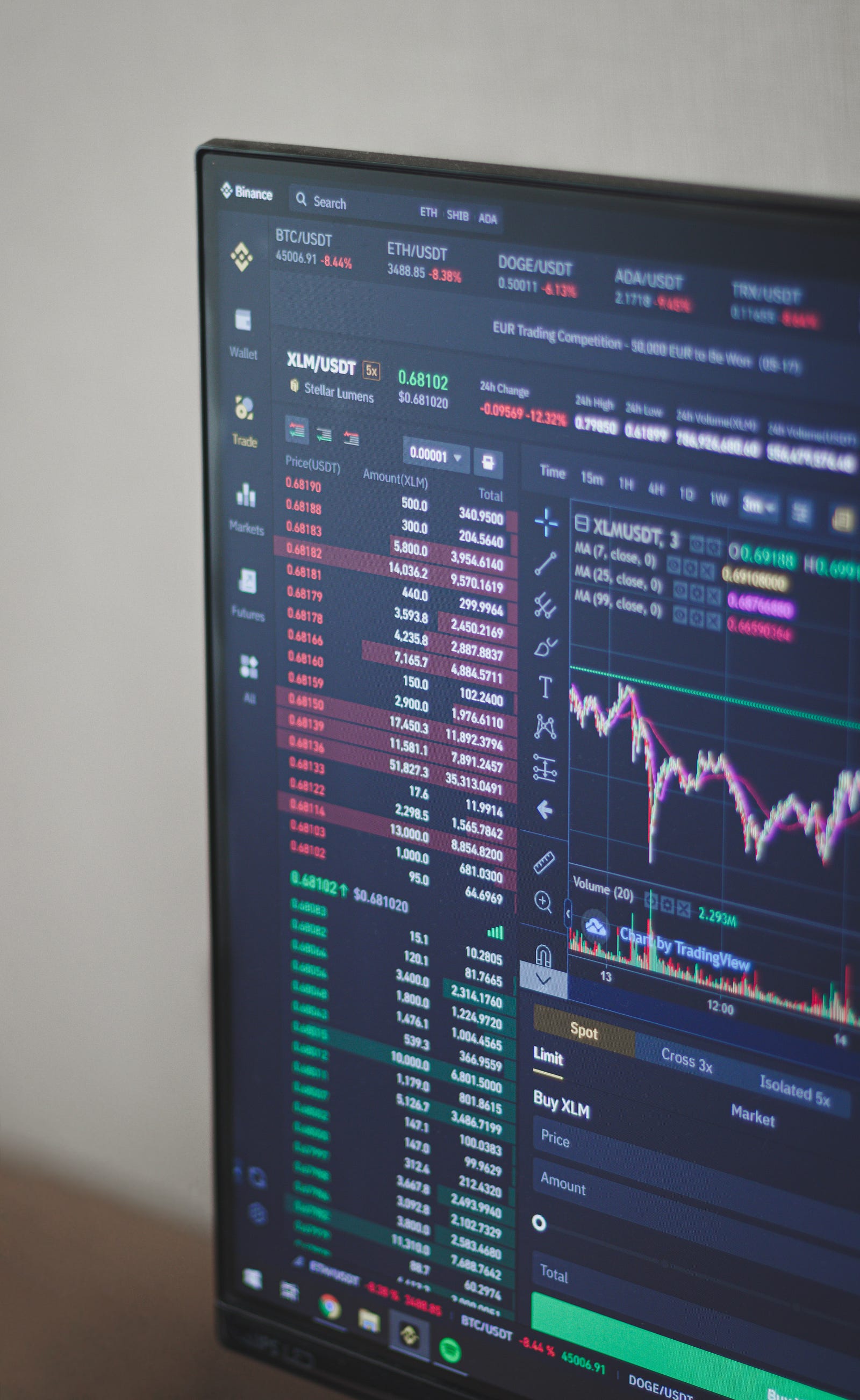During the first few months of the lockdown of the “pandemic”, I decided to learn about trading. Most of what I heard were around the potential for profitability, but there are two sides to a story, just like anything. I soon found out that about 90% of traders lose money.
As I was already familiar with cryptocurrencies, I decided this would be the perfect market to test the waters on. Mainly because I was already heavily invested in digital currency, so if I were going to make it work, it would be there. So over nearly eight months, I watched Youtube videos, read dozens of articles and put my trading knowledge to the test. Understanding terminologies like stop-losses, support, resistance, longs, and the now famous shorting recently happened with Gamestop.
Before I proceed, I want to make a disclaimer: I am not a financial advisor and am not an expert trader. Therefore anything I say should not be taken as that. I learn every day and have limited experience in the cryptocurrency trading market.
Here are five important lessons I learnt:

1 Patience is a virtue
If there is anything I learnt from trading is the importance of being a little bit more patient. An example is on a trade I made with a crypto Ethereum just a few weeks ago. My instincts/ indicators told me the market could bounce back because I entered at a good position. And within 24 hours, it pumped back up, and I was already up 5% of my initial investment.
From this point, I usually close the trade, take my profits and call it a day. However, I felt that the market was still on an uptrend, so I decided to wait a little longer to see if there was still gas in the tank. Sure enough, the bull run continued, and the next day, my profits rose to 11%, making me a happy guy.
I reaped the rewards because I played the patient game and “let my runners” run, as they say in trading.
2 Learn to take a loss but try and avoid them if you can.
When I started trading, I rarely used stop losses when I entered trades, which is almost suicidal as the market can swing in your favour or out of it. A stop-loss, in simple terms, is when you tell the market to sell your position once a particular condition is met. The aim is to stop your loss, hence the name.
My reluctance for stop losses soon caught up with me when I got liquidated in about month three after, taking a long position on a crypto, which took a significant dump. Since then, I have learnt the hard way that setting up a stop loss can save your account. Also, wanting to win every trade isn’t realistic, but being content with a minor loss and knowing when to walk away and learn from it.
3 Don’t be greedy

Greed is one of the seven deadly sins and probably the most prominent trait for traders. They see green then greed kicks in. It’s not a surprise, as traders aren’t robots but rather humans (although you can train a robot to trade for you now). During my first couple trading weeks, I too fell under this umbrella and even till now, I find myself having to weed out of it and not let greed get the best of me.
An example of this is when you’re trading coin Y, and you’re up 15% in profit — Woop! Instead of taking your earnings and saying thank you very much, you hold on, hoping that you can make 25%.
However, hope isn’t enough in the stock market. The market can quickly turn, and your 15% soon drops to 10%, then 6%. And within a few hours, it can drop to-3%, and by that time, if you have a stop loss, you’re already stopped out.
4 Do not rush anything
What flares up fast, extinguishes quick — Turkish proverb
Generally I try not to rush or force anything. I learnt the valuable lesson of not trying to jump on a train but instead wait for the market to come to me.
This rule also applies to making friends, career decisions, relationships and even minute tasks like getting a door to unlock. I choose not to use heavy force to any of these. Most things come natural and require little to no effort only if timed correctly. If you miss the train, then wait for the next one to show on the platform.
5 Emotions can and will get the best of you
Being human means we have emotion. Yeah I know, we aren’t robots just yet, although I feel we are slowly creeping towards it (another story for another day perhaps). Hence, we use this emotion as a driver in most of our decisions. Should I take a long position or perhaps go short or do nothing at all and wait it out? The list goes on.
Whenever I trade, I try my best not to let emotions sway my decision by what is currently happening in the market. Instead, I let my rules be my guiding force. People allow emotions to get to them which can cause mistakes and at times even death. As a result, I’ve learnt that not taking things personally or reacting on impulse is crucial. Although sometimes, I fall short of this myself at times. What can I say… I’m only human.





